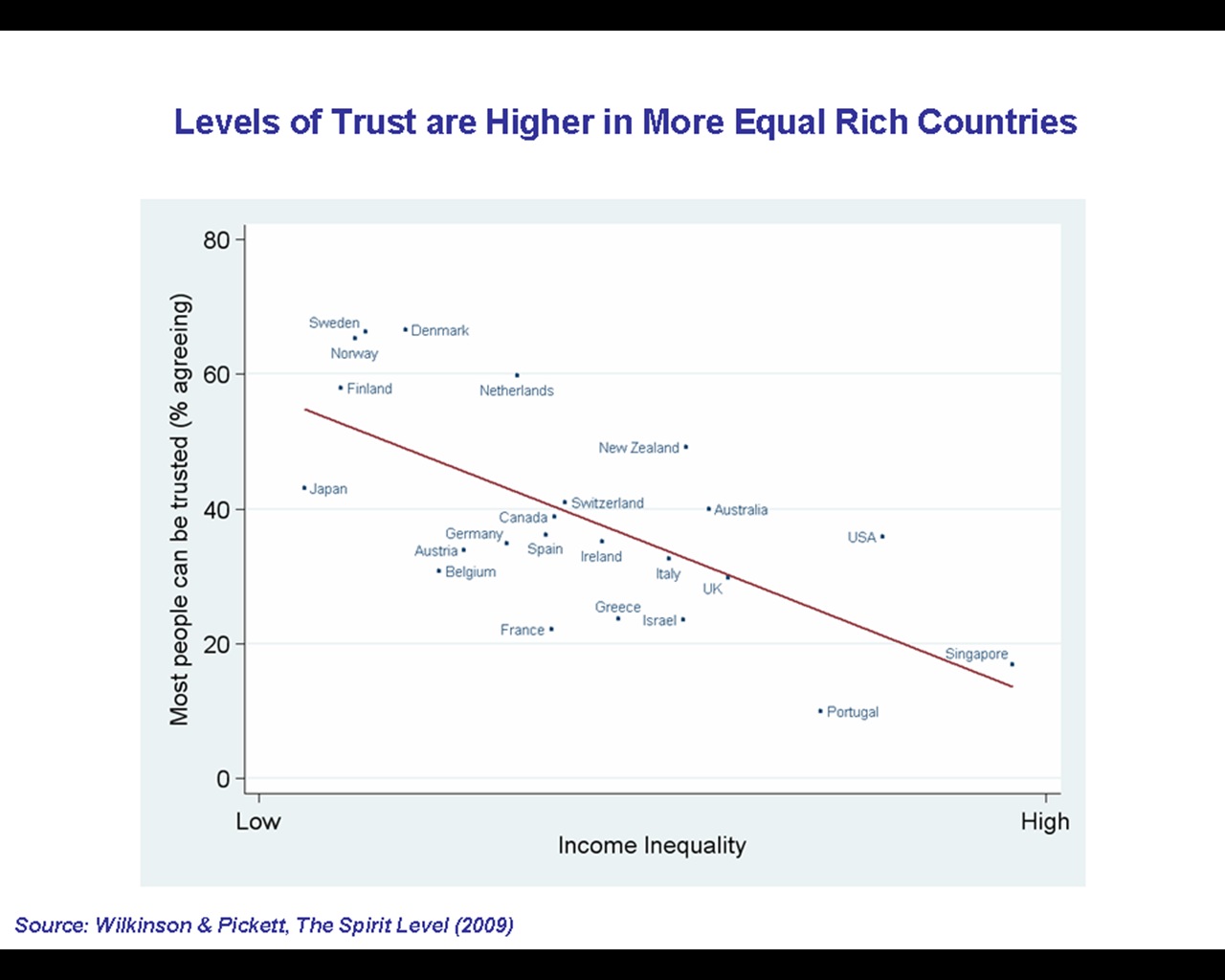|
Solidarism
Solidarism or solidarist can refer to: * The term " solidarism" is applied to the sociopolitical thought advanced by Léon Bourgeois based on ideas by the sociologist Émile Durkheim which is loosely applied to a leading social philosophy operative during and within the French Third Republic prior to the First World War. * A member of the American Solidarity Party, a minor Christian Democratic party in the United States, is often referred to as a "Solidarist". * "Social Catholicism" or the application of the Catholic social teaching as outlined in the papal social encyclicals and promoted by Heinrich Pesch (1854–1926) in his Teaching Guide to Economics. * The Swedish system of labor arrangement in which labor unions and capitalists jointly set wages below market clearing levels. From this arrangement, labor receives full employment and wage leveling, while capitalists pay less for labor, and do not have to worry about their employees being "poached" by firms who can offer more. Thi ... [...More Info...] [...Related Items...] OR: [Wikipedia] [Google] [Baidu] |
Corporatism
Corporatism is a collectivist political ideology which advocates the organization of society by corporate groups, such as agricultural, labour, military, business, scientific, or guild associations, on the basis of their common interests. The term is derived from the Latin ''corpus'', or "body". As originally conceived, and as enacted in fascist states in mid-20th century Europe, corporatism was meant to be an alternative to both free market economies and socialist economies. The hypothesis that society will reach a peak of harmonious functioning when each of its divisions efficiently performs its designated function, as a body's organs individually contributing its general health and functionality, lies at the center of corporatist theory. Corporatism does not refer to a political system dominated by large business interests, even though the latter are commonly referred to as "corporations" in modern American vernacular and legal parlance; instead, the correct term for thi ... [...More Info...] [...Related Items...] OR: [Wikipedia] [Google] [Baidu] |
National Alliance Of Russian Solidarists
The National Alliance of Russian Solidarists (NTS; russian: Народно-трудовой союз российских солидаристов; НТС; ''Narodno-trudovoy soyuz rossiyskikh solidaristov'', ''NTS'') is a Russian anticommunist organization founded in 1930 by a group of young Russian anticommunist White emigres in Belgrade, Serbia (then part of Kingdom of Yugoslavia). The organization was formed in response to the older generation of Russian emigres (veterans of the White movement) who were perceived as being stagnant and resigned to their loss in the Russian Civil War. The youth which formed NTS decided to take an active role in fighting against communism by studying the newly emerging Soviet culture, the psyche of a person living in the Soviet Union, and developing a political program based on the concept of solidarism. Political program The solidarist ideology of NTS was built on the Christian understanding of people's collective social responsibility fo ... [...More Info...] [...Related Items...] OR: [Wikipedia] [Google] [Baidu] |
Catholic Social Teaching
Catholic social teaching, commonly abbreviated CST, is an area of Catholic doctrine concerning matters of human dignity and the common good in society. The ideas address oppression, the role of the state, subsidiarity, social organization, concern for social justice, and issues of wealth distribution. Its foundations are widely considered to have been laid by Pope Leo XIII's 1891 encyclical letter '' Rerum novarum'', which advocated economic distributism. Its roots can be traced to the writings of Catholic theologians such as St. Thomas Aquinas and St. Augustine of Hippo. It is also derived from concepts present in the Bible and cultures of the ancient Near East. According to Pope John Paul II, the foundation of social justice "rests on the threefold cornerstones of human dignity, solidarity and subsidiarity". According to Pope Benedict XVI, its purpose "is simply to help purify reason and to contribute, here and now, to the acknowledgment and attainment of what is ju ... [...More Info...] [...Related Items...] OR: [Wikipedia] [Google] [Baidu] |
Christian Democratic
Christian democracy (sometimes named Centrist democracy) is a political ideology that emerged in 19th-century Europe under the influence of Catholic social teaching and neo-Calvinism. It was conceived as a combination of modern democratic ideas and traditional Christian values, incorporating social justice and the social teachings espoused by the Catholic, Lutheran, Reformed, Pentecostal, and other denominational traditions of Christianity in various parts of the world. After World War II, Catholic and Protestant movements of neo-scholasticism and the Social Gospel shaped Christian democracy. On the traditional left-right political spectrum Christian Democracy has been difficult to pinpoint as Christian democrats rejected liberal economics and individualism and advocated state intervention, but simultaneously defended private property rights against excessive state intervention. This has meant that Christian Democracy has historically been considered centre left ... [...More Info...] [...Related Items...] OR: [Wikipedia] [Google] [Baidu] |
Léon Bourgeois
Léon Victor Auguste Bourgeois (; 21 May 185129 September 1925) was a French statesman. His ideas influenced the Radical Party regarding a wide range of issues. He promoted progressive taxation such as progressive income taxes and social insurance schemes, along with economic equality, expanded educational opportunities, and cooperative solidarism. In foreign policy, he called for a strong League of Nations, and the maintenance of peace through compulsory arbitration, controlled disarmament, economic sanctions, and perhaps an international military force. Biography Bourgeois was born in Paris in to a modest Republican family of a watchmaker of Burgundian descent, and was trained in law. After holding a subordinate office (1876) in the department of public works, he became successively prefect of the Tarn (1882) and the Haute-Garonne (1885), and then returned to Paris to enter the Ministry of the Interior. He became Prefect of Police in November 1887 at the critical moment o ... [...More Info...] [...Related Items...] OR: [Wikipedia] [Google] [Baidu] |
Roger Holeindre
Roger Holeindre (21 March 1929 – 30 January 2020) was a French Army veteran, politician and author. He served in the First Indochina War and the Algerian War, was a member of the National Assembly from 1986 to 1988. Holeindre also served as the vice-president of the National Front (FN) where he represented the " national-conservative" tendency, opposed to "nationalist revolutionaries" and Third Position ideologies. Holeindre was the president of the ''Cercle national des combattants'' and the honorary president of the Party of France. Life and activism Roger Holeindre was born on 21 March 1929 in Corrano, Corse-du-Sud. He grew up in Vosges and then Seine-Saint-Denis. In 1989, he wrote ''À tous ceux qui n'ont rien compris'' ("To those who haven't understood a thing") in which he claims to have stolen two machine guns from the Germans in August 1944 and that the operation got a friend killed. It has not been proven or denied he joined any Resistance organisation afterwards, ... [...More Info...] [...Related Items...] OR: [Wikipedia] [Google] [Baidu] |
Third Way
The Third Way is a centrist political position that attempts to reconcile right-wing and left-wing politics by advocating a varying synthesis of centre-right economic policies with centre-left social policies. The Third Way was born from a re-evaluation of political policies within various centre to centre-left progressive movements in the 1980s in response to doubt regarding the economic viability of the state and the perceived overuse of economic interventionist policies that had previously been popularised by Keynesianism, but which at that time contrasted with the rise of popularity for neoliberalism and the New Right starting in the late 1970s and throughout the 1980s.Lewis, Jane; Surender, Rebecca (2004). ''Welfare State Change: Towards a Third Way?'' Oxford University Press. pp. 3–4, 16. The Third Way has been promoted by social liberal and social-democratic parties.Whyman, Philip (2005). ''Third Way Economics: Theory and Evaluation''. Springer. . In the Unit ... [...More Info...] [...Related Items...] OR: [Wikipedia] [Google] [Baidu] |
Solidarity Economy
Solidarity economy or Social and Solidarity Economy (SSE) refers to a wide range of economic activities that aim to prioritize social profitability instead of purely financial profits. A key feature that distinguishes solidarity economy entities from private and public enterprises is the participatory and democratic nature of governance in decision-making processes as one of the main principles of the SSE sector. Active participation of all people involved in decision-making procedures contributes to their empowerment as active political subjects. However, different SSE organizational structures reflect variations in democratic governance and inclusive participation. Ultimately, SSE represents a crucial tool in guaranteeing that social justice ideals are upheld and that the wellbeing of the most vulnerable populations is paid attention to during the planning processes''.'' Overview Some refer to solidarity economy as a method for naming and conceptualizing transformative monetary ... [...More Info...] [...Related Items...] OR: [Wikipedia] [Google] [Baidu] |
Social Justice
Social justice is justice in terms of the distribution of wealth, Equal opportunity, opportunities, and Social privilege, privileges within a society. In Western Civilization, Western and Culture of Asia, Asian cultures, the concept of social justice has often referred to the process of ensuring that individuals fulfill their Role theory, societal roles and receive their due from society. In the current movements for social justice, the emphasis has been on the breaking of barriers for social mobility, the creation of Social safety net, safety nets, and economic justice. Social justice assigns rights and duties in the institutions of society, which enables people to receive the basic benefits and burdens of cooperation. The relevant institutions often include taxation, social insurance, public health, State school, public school, public services, labor law and regulation of Market (economics), markets, to ensure distribution of wealth, and equal opportunity. Interpretations tha ... [...More Info...] [...Related Items...] OR: [Wikipedia] [Google] [Baidu] |
Social Cohesion
Group cohesiveness (also called group cohesion and social cohesion) arises when bonds link members of a social group to one another and to the group as a whole. Although cohesion is a multi-faceted process, it can be broken down into four main components: social relations, task relations, perceived unity, and emotions. Members of strongly cohesive groups are more inclined to participate readily and to stay with the group. Definition From Neo-Latin and French , in physics, cohesion means "the force that unites the molecules of a liquid or of a solid". Thereby, there are different ways to define group cohesion, depending on how researchers conceptualize this concept. However, most researchers define cohesion to be task commitment and interpersonal attraction to the group. Cohesion can be more specifically defined as the tendency for a group to be in unity while working towards a goal or to satisfy the emotional needs of its members. This definition includes important aspects of ... [...More Info...] [...Related Items...] OR: [Wikipedia] [Google] [Baidu] |
Distributism
Distributism is an economic theory asserting that the world's productive assets should be widely owned rather than concentrated. Developed in the late 19th and early 20th centuries, distributism was based upon Catholic social teaching principles, especially Pope Leo XIII's teachings in his encyclical '' Rerum novarum'' (1891) and Pope Pius XI in '' Quadragesimo anno'' (1931). It has influenced Anglo Christian Democratic movements, and has been recognized as one of many influences on the social market economy. Distributism views ''laissez-faire'' capitalism and state socialism as equally flawed and exploitative, favouring instead small independent craftsmen and producers, or if that is not possible, economic mechanisms such as cooperatives and member-owned mutual organisations as well as small to medium enterprises and large-scale competition law reform such as antitrust regulations. Christian democratic political parties such as the American Solidarity Party have ad ... [...More Info...] [...Related Items...] OR: [Wikipedia] [Google] [Baidu] |





